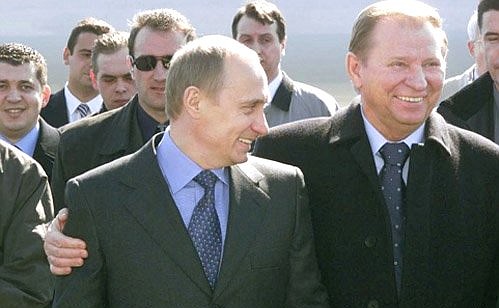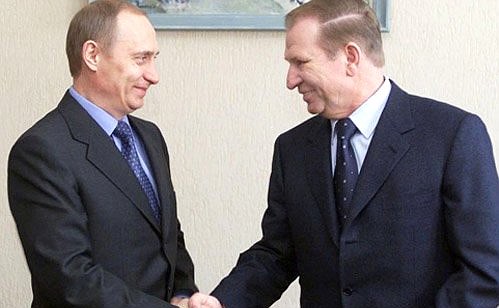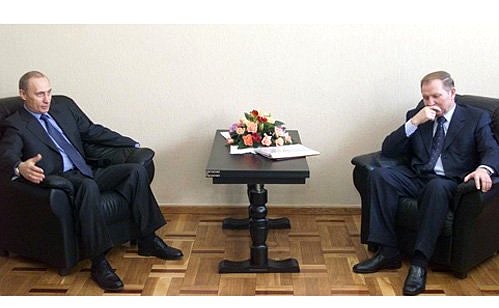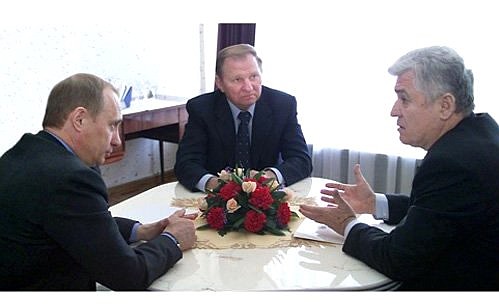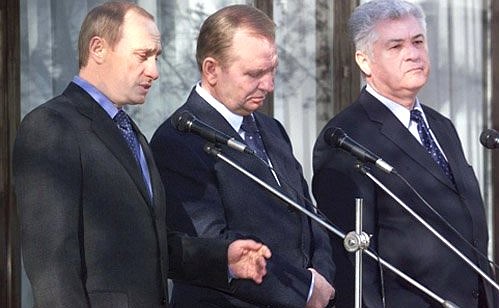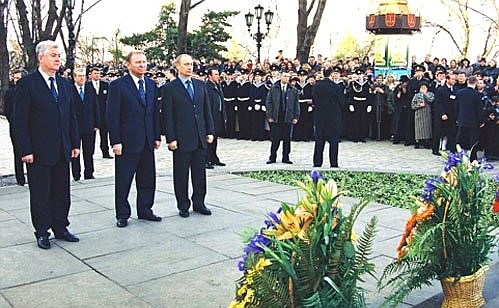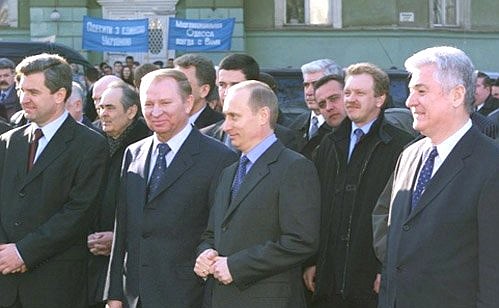The summit opened with a meeting between Presidents Vladimir Putin of Russia and Leonid Kuchma of Ukraine, who were later joined by Moldovan leader Vladimir Voronin. In the course of negotiations the three leaders discussed ways of solving the Transdnestrian issue, future prospects for the Eurasian Economic Community (EurAsEC), and preparations for a May 29–30 CIS summit in Chisinau.
Following the meeting the Russian, Ukrainian, and Moldovan presidents adopted a joint statement. In the statement they expressed satisfaction with the meeting held in Odessa and went on record in favour of “fair cooperation between CIS countries in the political, economic and humanitarian fields”, as well as stressed the Community’s important role in the fight against new challenges and threats, above all international terrorism, organised crime and illicit drug trafficking.
Mr Putin, Mr Kuchma and Mr Voronin expressed their belief that “full-fledged participation of their countries in the work of the Eurasian Economic Community could contribute to the speedy economic development of Moldova and Ukraine, the proper functioning of a free trade zone, and the improvement in the welfare of their peoples.”
They also agreed to coordinate their common efforts aimed to achieve an early resolution to the Transdnestrian problem. Mr Kuchma and Mr Voronin expressed hope that next week’s meeting of CIS heads of customs and border authorities would revitalise the negotiating process on Transdnestria.
In conclusion, the Russian, Moldovan and Ukrainian presidents held a joint news conference. Mr Putin told journalists that Russia regarded and would continue to regard Ukraine as a strategic partner no matter who wins the March 31 Ukrainian parliamentary elections. In Russia, there was a nation-wide consensus on the development of relations with Ukraine, he noted.
President Putin said trade between Russia and Ukraine in 2001 exceeded $10 billion. That, he said, was a good indicator both for Russia and Ukraine, although bilateral relations still have a large untapped potential.
Mr Putin voiced his opinion, stating that if Ukraine’s pipeline capacities were added to the Almaty fuel and energy agreements reached in March of that year by Russia, Kazakhstan, Turkmenistan and Tajikistan, these countries could become even stronger and more interesting partners for European energy consumers. Mr Putin and Mr Kuchma agreed to instruct their governments to examine the effectiveness of the long-distance gas pipeline transporting Russian gas to Europe across Ukrainian territory.
President Putin called attention to the need to speed up the establishment of a free trade zone in order to tap the potential of EurAsEC.
He thanked the people of Odessa for their invitation to visit the city and for the splendid organisation of the Russian-Ukrainian-Moldovan summit.
